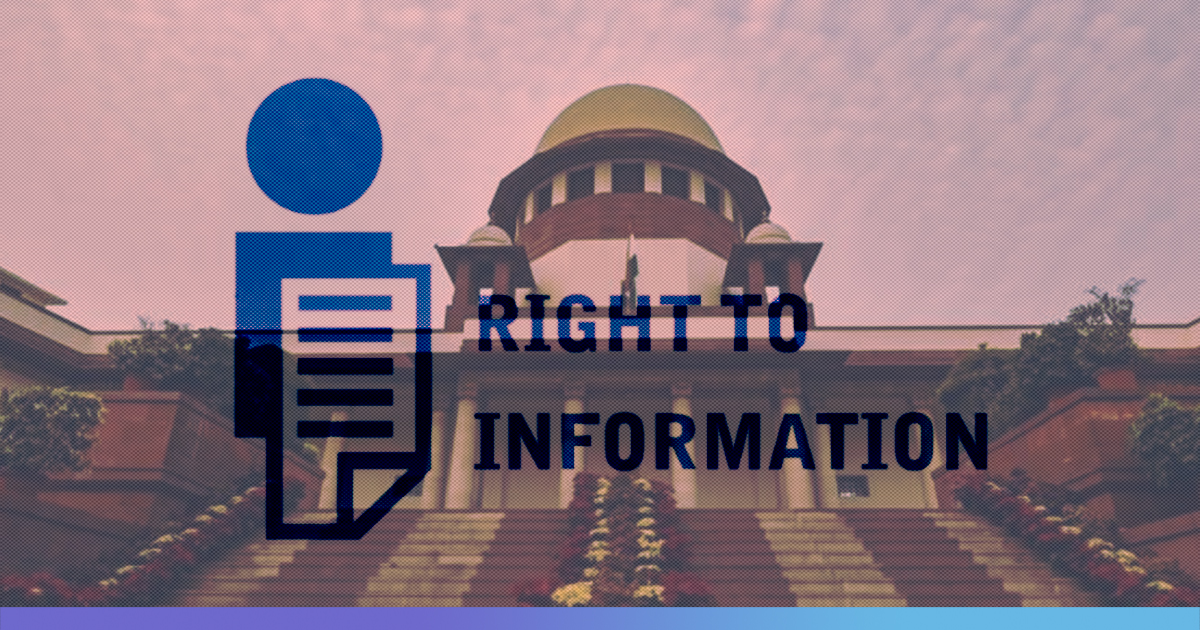On July 22, the Lok Sabha passed the Right to Information (Amendment) Bill 2019. This bill seeks to amend the RTI Act, 2005.
There were 218 ‘yes’ votes and 79 ‘no’ votes on the motion to vote on the bill, Speaker Om Birla announced.
This bill has faced a strong resistance from activists and a section of the opposition who allege that this amendment would dilute the bill. Dissenters also argue that the amendment would compromise the autonomy of the Chief Information Commissioner (CIC) and Information Commissioners (ICs).
What Is The Amendment
The amendment brings in two major changes. As of now, the tenure of the CIC and ICs is fixed for five years. However, the amendment proposes to change the fixed nature of the tenure to “for such term as may be prescribed by the Central Government”. The same rule is to be extended to State Information Commissioners.
The second major change pertains to salary and the allowances of CIC and ICs. These salaries, until now were at par with that of Chief Election Commissioner and Election Commissioners respectively, as per provisions of the Constitution.
The status and privileges bestowed upon CIC and ICs at par with the corresponding posts in Election Commission were given under the RTI Act to maintain the autonomy of the institution.
However, the amendment now says, “The mandate of Election Commission of India and Central and State Information Commissions are different. Hence, their status and service conditions need to be rationalised accordingly.”
Opposition Against The Amendments
The amendments in the RTI act has met with strong opposition from several activists, who argue that it is an attempt to dilute the powers of the RTI Commission and that of snatching away its autonomy.
While speaking to The Logical Indian, RTI activist and former Central Information Commissioner Shailesh Gandhi said, “This is absolutely not necessary, no logical, plausible reason has been given by the government on why they are bringing about the amendment. What we cannot see, but seems implied is that they only want to control the commissioner and their independence, which is really very sad.”
Prominent activist and co-convenor of the National Campaign for People’s Right to Information (NCPRI), Anjali Bharadwaj said, “These are very regressive amendments. RTI is used by citizens across the country to hold the government answerable and accountable. If there is no information provided under the law, people have no option but to go to the Information Commissioner to ask for justice. Information Commissioners have the power to penalise officials who are responsible for violations of the law. By trying to control the commission, you are converting it to a caged parrot. This is to undermine their independence and therefore impacts the Right to Information Act.”
The government argues that the Election Commission is a Constitutional body and the Central and State Information Commissions are statutory bodies established under the RTI Act, 2015, implying the bodies are different and their status ‘needs to be rationalized accordingly’. On this, Bharadwaj said, “It is a completely bogus argument because there are many statutory bodies whose functionary have the status as par with the constitutional body. There is nothing to prevent that either in the Constitution or the law and therefore there is absolutely no basis to that argument.”
Leaders of the opposition have also opposed the amendments, calling it an attempt to make it a ‘toothless tiger’. Congress MP Shashi Tharoor said that the amendments were made as RTI had made the government insecure, hence it was keen on destroying the autonomy of the Information Commission.
Sonia Gandhi said that the government “sees the RTI Act as a nuisance and wants to destroy the status and independence.”
Other leaders who have opposed the amendments include DMK’s A Raja, MIM MP Asaduddin Owaisi and RSP’s NK Premchandran.
Also Read: Talking Transparency, Acting Opaque – Invading The Spirit Of RTI













